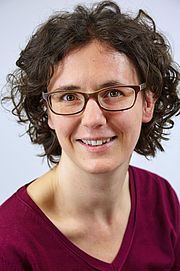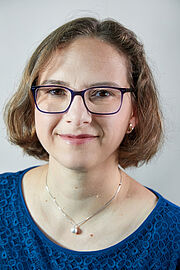Promoting sustainability with precision viticulture
Today’s wineries are facing increasing regulatory requirements in terms of resource efficiency. While viticultural production has to be safe and environmentally compatible, winegrowers have to deal with increasing cost pressure and fierce international competition. Amid these challenges, winegrowers have to strike a new path to be profitable. “One key factor is to introduce digital solutions for different steps in viticultural production,” says Dr. Matthias Friedel from the Department of General and Organic Viticulture at Hochschule Geisenheim University. He is coordinating a field trial on the sensor-controlled application of nitrogen fertilizer, which is supposed to enable winegrowers to provide a dose of fertilizer that is targeted to the needs of the individual plant. At the same time, a targeted application of fertilizer takes into account the more stringent thresholds and requirements introduced by the revision of the German Fertilizer Ordinance in 2020.
“A tractor equipped with a sensor measures the reflection of the leaves and uses this information to determine the condition of the plant. The information is passed on digitally to the fertilizer spreader that adjusts the amount of fertilizer. Stressed plants will be given more fertilizer while vigorous vines receive a lower dose,” explains Dr. Friedel who tested this new procedure with his team in May 2022 in the vineyards of the Hessian State Wineries of Kloster Eberbach. The team was supported by the sensor manufacturer Fritzmeier Umwelttechnik as well as Rauch GmbH, one of the leading manufacturers of precision fertilizer spreaders.
The viticultural sector is lagging behind in terms of digitization
“This is the first time that this new procedure is used in field trials in German-speaking countries”, says Dr. Friedel. “In agriculture, digital tools have already become a common phenomenon. However, viticulture as an agricultural niche has not been very attractive for manufacturers of precision agricultural machinery because it is simply too small and too slow.” In order to introduce the benefits of precision agriculture to the vineyards, Hochschule Geisenheim University and the Hessian State Wineries of Kloster Eberbach are testing various digital procedures. As part of the experimental fields to enhance digitization in agriculture, initiated by the Federal Ministry of Food and Agriculture (BMEL), the project partners are funded with 1.8 million euros.
From theory to practice
The experimental fields to enhance digitization in agriculture are a research network consisting of 14 individual projects. As part of the DIWAKOPTER project, Geisenheim scientists investigate the use of drones and sensors in plant protection and fertilization. The main target of the network is to transfer digital technologies into agricultural practice in order to improve the ecological and economic sustainability of domestic agriculture, animal welfare and consumer protection.
At the forthcoming DIWAKOPTER regional conference on July 13, 2022 winegrowers and agricultural professionals receive latest information about digitization in viticulture and learn more about future prospects of digital solutions. Innovators from the business community will join Geisenheim scientists to exchange views and answer questions. The agenda also features presentations from the scientific community and industry professionals.


























